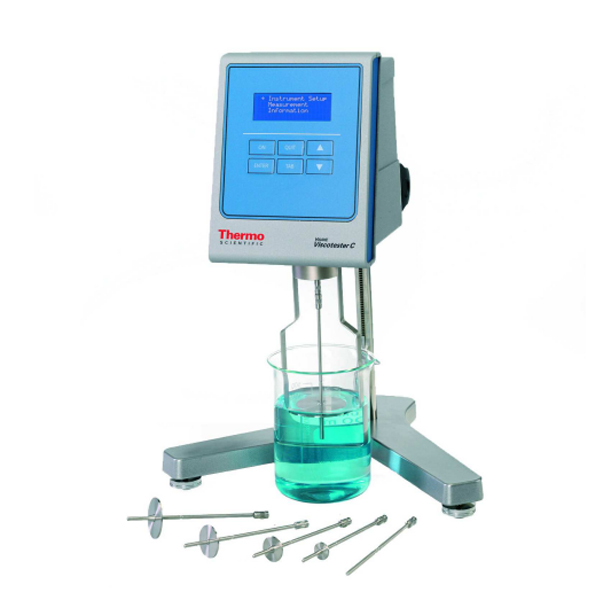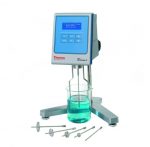Viscosity of Newtonian and non-Newtonian liquids (rotary viscometer)

Principle
The viscosity of liquids can be determined with a rotation viscometer, in which a motor with variable rotation speed drives a cylinder immersed in the liquid to be investigated with a spiral spring. The viscosity of the liquid generates a moment of rotation at the cylinder which can be measured with the aid of the torsion of the spiral spring and read on a scale.
Benefits
- Classic experiment to determine the viscosity of a huge variety of fluids
- Watch all results directly on the built-in multilanguage display
- Use several spindles that come with a storage rack
- Wearless torque measuring system with high accuracy
- Digital speed control
- Interdisciplinary use also in applied sciences or physical chemistry
Rotary viscometer, 15 – 2,000,000 mPas
Acetone, chemical pure, 250 ml
Glycerol, 250 ml
Castor oil 250
Separator for magnetic bars
Right angle boss-head clamp
Glass rod,boro 3.3,l=200mm, d=5mm
Beaker, 250 ml, high-form
Beaker, 600 ml, low-form
Magnetic stirring bar 30 mm, cylindrical
Supp.rod stainl.st.,50cm,M10-thr.
Support rod with hole, stainless steel, 10 cm
Spring balance holder
Magnetic stirrer with heater MRHei-Tec
Tasks
- Determine the gradient of the rotational velocity as a function of the torsional shearing stress for two Newtonian liquids (glycerine, liquid paraffin).
- Investigate the temperature dependence of the viscosity of Castor oil and glycerine.
- Determine the flow curve for a non Newtonian liquid (chocolate).
What you can learn about
- Shear stress
- Velocity gradient
- Internal friction
- Viscosity
- Plasticity

